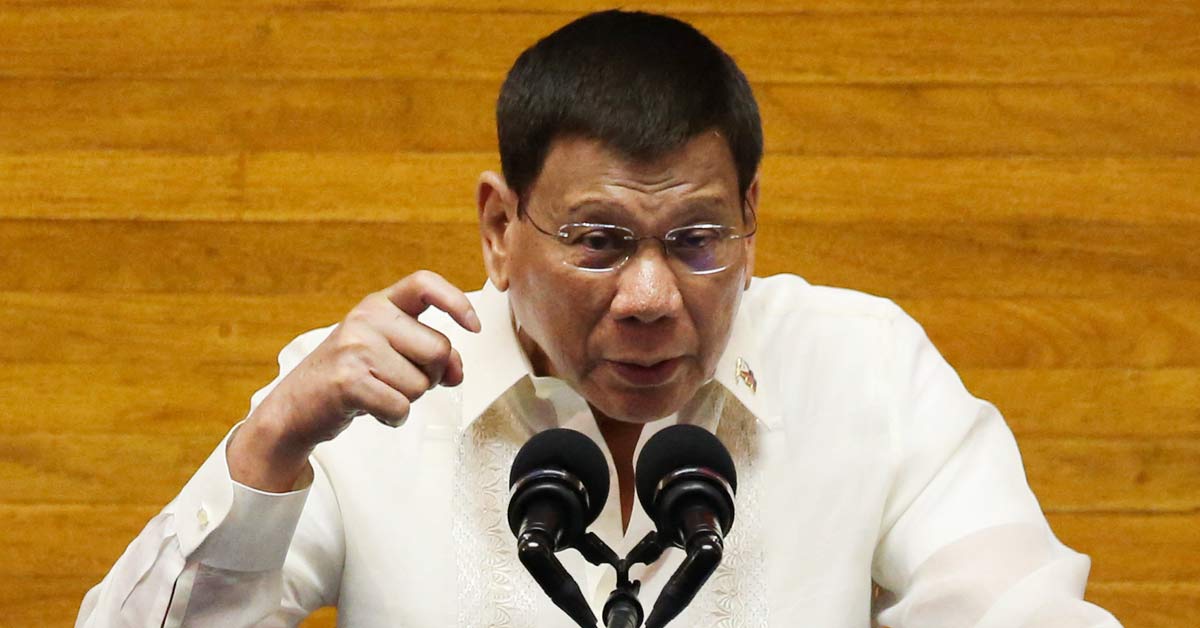Filipino citizens were once again let down with disheartening news. On 30 December 2021, President Rodrigo Duterte vetoed the funding of a Human Rights Institute in the Philippines. It is one of the five items rejected by Duterte in the PHP 5.024-trillion 2022 national budget.
In an interview with CHR Commissioner Karen Dumpit, she expressed her shock and disappointment towards Duterte’s action, stating that it was the first time for the CHR to experience such a direct veto like this.
In Duterte’s veto message, he states that no “specific appropriation is provided for the purpose” in the creation of a human rights institute. He further claims that it requires a more comprehensive review. In defence of his statement, the HRI, being a flagship program that the CHR has been working on for many years, has already gone through rigorous and inclusive planning. As Dumpit pointed out, “The HRI program had undergone a comprehensive study and review, which entailed consultations within the CHR, the broader human rights community, and other similar educational institutes and offices in government.”
In line with the commemoration of International Human Rights Day last 10 December 2021, the Commission on Human Rights (CHR) of the Philippines launched the Human Rights Institute (HRI). The establishment of an HRI serves as the flagship program of the CHR; it is lauded and supported by key partners, such as universities, organizations, CSOs, and international representatives.
Establishing a formal institution that will widely promote and provide Human Rights education for the Filipinos has been a lifelong goal of the CHR. Educating the citizens about human rights is an important and integral part to understand and be able to provide a remedy to various contemporary and deeply rooted socioeconomic and socio-political problems in the country.
As CHR Spokesperson Jacquieline de Guia said, “Learning human rights is one of the most pressing needs of our country and the world today. We need to know what human rights are and make them know. Human rights education is relevant in solving and addressing modern-day challenges such as impunity, climate change, inequality, and persisting human rights violation.”
Upholding Human Rights In The Philippines
The 1987 Constitution of the Philippines stipulated the state’s obligation to promote, uphold and protect the human rights of every Filipino citizen. Provisions in the 1987 Constitution are guided by international human rights law. The same Constitution also mandates the CHR to be an independent human rights institution to uphold human rights. The Philippines is a signatory to several crucial United Nations treaties, such as the International Covenant on Civil and Political Rights (CCPR), the International Covenant on Economic, Social and Cultural Rights (ICESCR), and the Convention on the Rights of the Child (CRC) - to name a few. The Philippines is also the first ASEAN member to establish its own National Human Rights Institution (NHRI) and is one of the oldest democratic nations in Asia.
Despite this, the Philippines has been notoriously known for having rampant human rights violations and a weak justice and protection system to mitigate the issue. Under Duterte’s administration, human rights and the rule of law are significantly neglected and vilified as arbitrary, illegal, and extrajudicial killings loom the country.
Last year, Global Finance released a report of the World’s Safest Countries with the Philippines ranking at the bottom of the list. The sources, as claimed, were collectively garnered from the World Economic Forum and The Global Institute for Peace. The report instantly became controversial with questions of its credibility and methodology. Contestable or not, it is however undeniable that a multitude of unresolved socio-economic and political problems in the country do exist, primarily corruption, poverty, environmental degradation, and human rights abuses.
Moreover, the incompetency of the Duterte administration in handling the COVID-19 pandemic crisis worsen the living conditions of millions of Filipinos. The Philippines is one of the countries with the longest lockdown in the world. It is also known for ‘militarizing’ its COVID-19 response and for implementing ineffective protocols such as mandating a “Face shield” which was deemed by many Filipinos as an “icon of corruption.”
Unfortunately, the essence of human rights as inherent and as a fundamental right of every Filipino is oftentimes abused, misinterpreted, and taken advantage of. In several of his speeches, Duterte would devaluate human rights in defence of the widespread killings caused by his war on drugs.
He said that he does not care about human rights and claims that the operations would yield a safer drug-free environment and provide protection for innocent Filipinos. The ironic part is, the innocent Filipinos, the very people he had sworn to protect, were the ones killed and affected by his anti-drug campaigns. It targets the poor and the most vulnerable citizens who do not have access to a proper justice system. Duterte and his administration receives backlash from international organizations, the press, human rights advocates, and recently faced investigation calls from the ICC.
The Sidestepped Opportunity On Human Rights Education
Learning about human rights is of vital importance. Education awakens the humane sense in us to respect human rights, seek freedom and equality, and advocate for justice. With his power, Duterte could have given the country its HRI, a harmless and completely beneficial institution to empower Human Rights Education.
The veto against the HRI symbolises the appalling neglect of human rights under the Duterte administration. As Duterte’s term reaches its final months, his adamant and irreconcilable offence against human rights will undoubtedly be one of the things he will be remembered for.
The views expressed in this article are the author’s own and do not necessarily reflect those of The ASEAN Post.

